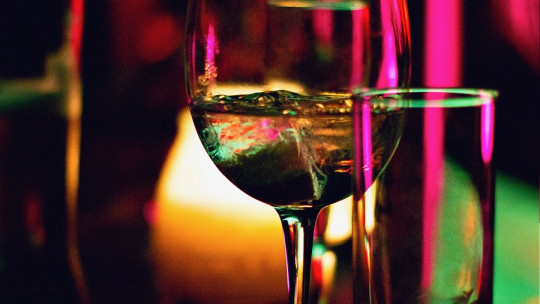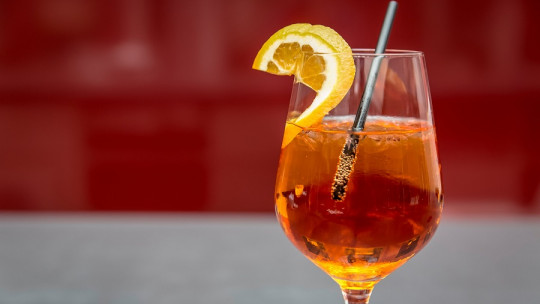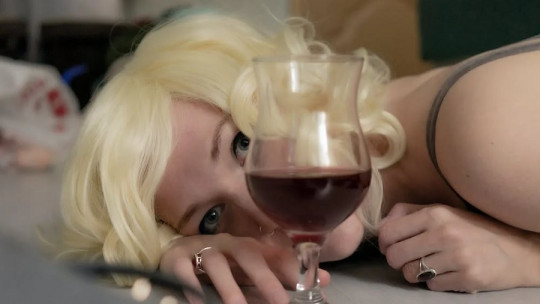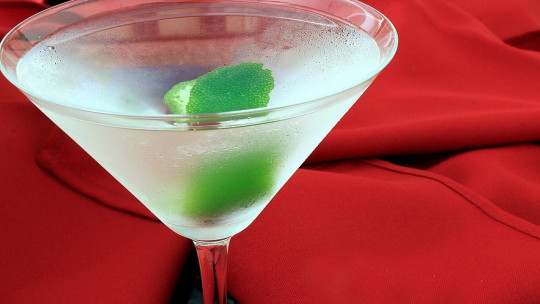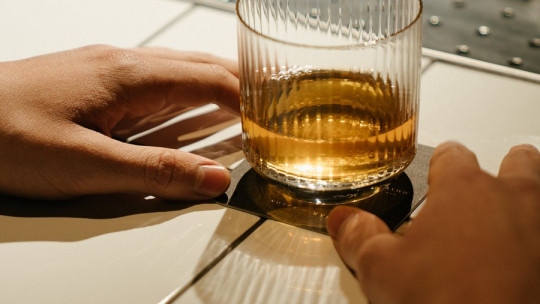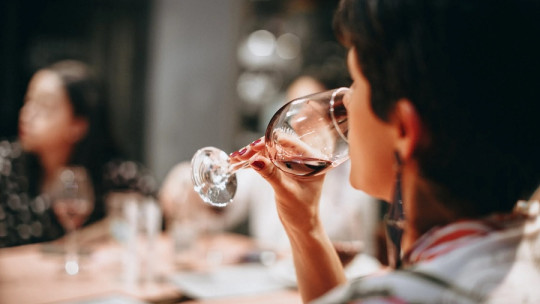Alcohol is the most consumed addictive substance among the population. Drinking is considered a cultural phenomenon, something essential for spending time with friends and having fun, and this is surely the belief that makes it perceived as something whose risk is low.
For this reason, frequent consumption of alcohol is a fairly deep-rooted habit, and more and more people are crossing the delicate line between normal consumption and alcoholism.
The dangers of alcohol are multiple and, for this reason, many people, especially heavy drinkers and worried parents, wonder how to prevent alcoholism Below we will see some strategies focused on this objective.
How to prevent alcoholism?
Alcohol is, in many Western countries, the most consumed addictive substance. Beer, wine, spirits and other alcoholic beverages are seen as a fundamental element in many social situations, such as dinners, hangouts with friends or important celebrations.
Given its easy availability and legality, alcohol is also one of the drugs responsible for many cases of addiction Although there are all kinds of addicted people, alcohol, along with tobacco, are the most common addictions in the population, and that is why there are many people who try to get out of this addiction or, at best, cases, try to prevent drug dependence.
There is no magic formula to avoid alcoholism Each person is as they are and there are many situations and the type of alcohol consumption that influence the development of alcoholism. However, there are several strategies aimed at helping parents of adolescents and adults concerned about their own consumption, which have been shown to be quite effective.
Although there are many people who believe that alcohol is a substance that can have some type of health benefit if consumed, the truth is that it only serves to disinfect wounds. What is said that a glass of wine helps avoid heart problems has been proven false.
There is no evidence that links drinking alcohol to improved health, quite the contrary In addition to affecting concentration and other cognitive aspects, it causes damage to the liver and also the respiratory tract. In fact, it has been seen that the majority of laryngeal cancers are due to excessive alcohol consumption.
In terms of behavioral problems, alcohol consumption makes one feel uninhibited. This means that bad decisions can be made, such as consuming other even more harmful substances, such as cocaine, designer drugs, or playing pathologically (pathological gambling). Greater disinhibition is synonymous with unprotected sexual relations, potentially contracting a sexually transmitted disease (STD), and problematic behavior such as destroying street furniture, which can cause problems with the law.
Why do teenagers drink?
In a society in which information and communication technologies are available to everyone, the fact that adolescents decide to drink alcohol is clearly not because they do not know the effects that this substance has on the body. The reason they drink is, in addition to believing that what they have seen on the Internet does not have to happen to them, that They value short-term advantages as more relevant than long-term disadvantages
Among adolescent popular culture is the idea that alcohol helps integrate into the peer group. It is seen as a way to gain acceptance among classmates. Furthermore, by drinking they manage to gain certain physical, sexual or psychological effects, in addition to greater disinhibition that more shy people see as something extremely attractive.
Prevention of risky behavior with alcohol
Prevention of risk behaviors in adolescents basically focuses on preventing them from consuming alcohol. Although they may be close to the age of majority, alcohol still can cause serious cognitive disorders in your still-forming brain As for adults, prevention focuses on re-educating the person who could present a higher risk of developing alcoholism, in addition to teaching them strategies that help them moderate or completely eliminate drinking.
Prevention in adolescents
To prevent alcoholism in adolescents, there are basically the following two strategies that parents and educators should take into account.
1. Encourage an assertive style
It is common that in adolescents who have tried alcohol there have been attempts to consume other substances, such as marijuana or, if they have had access, cocaine. Sometimes these cases are due to quite egregious misinformation about the effects of these substances, but In most cases they are because teenagers are curious and, furthermore, in an attempt to be rebellious, they refuse to listen to what adults have told them.
Their normal communication style can be aggressive or passive, that is, responding with grunts or ignoring what their parents say. This may be because they have seen it from their parents, who may have a tense relationship style. This is why the best way to prevent drug use, especially alcohol, is to talk about the subject without taboos. In this way, the adolescent is invited to explain herself, to tell what she has been doing, as long as she is not approached with questions that are too invasive.
The objective is to ensure that the adolescent achieves an assertive style of expression, saying what he wants in a sincere, direct and appropriate way , feeling that the parents respect his point of view that he is sharing as the adult that in a few years he will be. If they have occurred, mention the specific and concrete behaviors that are related to possible alcohol abuse.
2. Establish norms
Establishing rules, privileges and punishments is essential in any good education. Parents and educators must actively intervene to prevent inappropriate behavior , including alcohol consumption. Supervision and control by adults should be aimed at helping adolescents learn the most adaptive behaviors.
Monitoring the adolescent should not be taken as a synonym for controlling everything he or she does. The teenager who feels controlled either gets frustrated or does everything possible to rebel. The appropriate thing is that, by speaking openly and without seeing it as a violation of his privacy, parents ask how his day went, what he has done with friends and what he would like to do with his classmates.
Being good parents does not mean being friends with the teenager. Rules, limits and certain privileges must be established to influence the adolescent’s behavior. One rule is that you cannot consume alcohol during the week. This rule, of course, must also be respected by adults, who must ask themselves if they are models of consumption or models of abstinence
If there have already been incidents related to alcohol, punishments can be imposed, such as withdrawal of privileges, reduced pay, less time to meet friends…
3. What to do on your first drunk?
Dealing with the first binge is a very difficult situation for any worried parent. Not only because it can be traumatic to see a child in that state, but it is also difficult to maintain composure. It is common for people not to know how to react correctly to this situation, with frequent anger, sadness, screaming, loss of nerve… In addition, parents can let out hurtful comments that are not going to help.
The first thing to avoid is talking about it while you are drunk, that is, not talking to the teenager when he cannot defend himself In addition to the fact that he will hardly remember what is said to him in that state, the only thing we will do is make him behave in a more violent way, opting for passatism and “whatever you say.” It is best to postpone the conversation to the next day, when the boy is in a position to maintain a dialogue without the world spinning around him.
The next day, when the conversation, not discussion, takes place, you should avoid dramatizing, although you should show seriousness, given that the situation requires it. The teenager must understand that this is a serious matter, in which his parents are concerned about his health and that it is necessary to take action about it, in addition to talking about it.
The ideal is to start with questions like “what happened last night?”, “what happened to make you feel bad?”, “who helped you get home?”… It is very important to let him speak as long as he needs and calmly What you should never do is make comments like “what have I done for you to turn out like this”, “you are irresponsible”, “drunk”…
During the conversation we should try to find out the reasons why he drank and the amount of alcohol he ingested. If it has happened that the adolescent has not had enough information about the risks of alcohol abuse (which is difficult, although possible, despite ICT), we will provide it to them and we will take advantage of it to reflect.
At the end, he must be made aware that we support him, and that we are not in favor of his drinking does not mean that we consider him an alcoholic, a failure as a son or that we stop loving him. You have to understand that we are here to help you with whatever you need , and that if it happens again, it is preferable that it not be like that, that you can call us to pick you up. Although there will be a talk the next day, you should understand that when you are drunk, what you should worry about is not about the fight your parents are going to give you, but about your health.
Prevention in adults
Although as adults we are not as influenced as adolescents, the truth is that alcohol abuse disorder can catch anyone off guard, especially after having experienced a very stressful or traumatic situation, such as the loss of a loved one very suddenly. a bad breakup, mistreatment, a terrorist attack or sexual abuse. Many people take refuge in alcohol to try to endure all the pain and suffering that these situations may have caused them
However, and fortunately, the majority of adults consume alcohol for social reasons and without necessarily having psychological problems behind their consumption. Sometimes it can be due to simple social pressures and other times because we like to drink. But even done in a controlled manner and only for recreational purposes, alcohol consumption is harmful, and you should know when to stop.
Below we will see some strategies to prevent alcohol from taking over our lives.
1. Alcohol far from home
The best way to avoid falling into temptation is to keep it out Alcohol should be far from home, this way you will avoid consuming it when you are bored. If the pantry has all kinds of liquors, you are more likely to be tempted easily.
The first step is not to have alcohol for consumption alone. You can buy a six-pack of beer if friends come over, but only drink it in front of other people.
Once the party or social event in question is over, you can give the leftover alcohol to the guests to take with them or, if they don’t want it, throw it down the drain. We shouldn’t feel bad about throwing away a drug.
2. Substitutes
Eliminated alcohol from pantries, to try to calm the desire You can buy other non-alcoholic drinks, such as sparkling water, tea or soft drinks (preferably unsweetened) to fill the gap
It is not a good idea to buy non-alcoholic beer or other drinks in their non-alcoholic version, since their consumption increases the desire to consume. It is better to try to adapt your palate to the taste of drinks that normally do not have alcohol, such as lemonade or those mentioned above.
3. Avoid sentimental drinking
Alcohol consumption does not just happen. Many times we consume alcohol alone for various reasons, all of them related to feelings : we are bored, sad, we feel lonely, stressed… All these feelings are the emotional basis of many addictions and we drink waiting to see if it will lift our spirits.
But the problem is that alcohol is a depressant. After a few minutes the high drops drastically, lowering our morale and sinking us even further. Basically, it makes things worse.
It is best to drink it alone in some social situations when we are having a good time and there is a reason to celebrate, or never, given that alcohol drunk in moderation also damages our health.
4. Try non-alcoholic activities
In many groups of friends, going to a bar is a tradition. But this does not mean that you cannot do anything new, such as going on a hike, riding a bike, trying a new sport, signing up for a language course…
By doing these types of activities in which alcohol is not welcome, you can enjoy an experience with a group of friends unforgettable and without being blurred by drunkenness.
5. Surround yourself with people who don’t drink
As surprising as it may seem, There are many people around us who are abstainers or who consume alcohol on very specific occasions.
It is very healthy to spend time with people like this, since they do not encourage alcohol consumption and they already know other ways to entertain themselves. It is very nice not to have to face people who invite us to consume every time we see them.
On the other hand, if you know someone who drinks too much and there is no way to reduce their consumption, It would be best to stay away from it to prevent it from harming us Perhaps you realize that alcohol is causing you to lose friends and choose to reduce your consumption.
6. Exercise
Exercising is a way to deal with problems, as long as they are not excessively serious. As long as consumption is moderate but you want to reduce it, exercise is one of the best strategies to prevent alcoholism.
Drinking makes us feel weak and weak, in addition to causing weight gain, counterproductive effects when carrying out a sporting activity. If we want to be one hundred percent every time we go to the gym or run, it is best not to consume
If we sign up for a competition, such as a marathon, we will soon become aware that we must be as clear as possible and we will avoid, as much as possible, consuming any alcoholic beverage.
7. Diary of alcoholic beverages
Avoiding excessive drinking is easier for some people than others. Some may drink it daily and decide to stop cold turkey, others, however, find it more difficult
Whatever the situation, the best way to be aware of how much you drink is to write it down, and for this it is very appropriate to make an alcohol diary, where you will write down the amount, type, days, place and why. of consumption.
The maximum daily alcohol limit recommended by the WHO is 30 g for men and 20 g for women translating this into more or less 14 drinks a week for the former and between 7-10 for the latter.
Taking this information into account, we can find out if our alcohol consumption is well above what health authorities recommend. In case it is not very high, but we still overcome it, it would be a good idea to set a goal to achieve, such as going down to about 10 drinks a week for men, for example.
When to seek help?
Everything explained up to this point is for cases in which a serious drinking problem has not yet occurred, that is, an alcohol abuse disorder. Many people consume alcohol from time to time, but It is the quantity and frequency that determines, in addition to the effects on the body, the severity of the specific case
If you have serious cognitive and organic problems due to excessive alcohol consumption, in addition to violent behavior, problems with the law and loss of relationships due to this substance, this is when you should consider the need to seek professional help.
Cognitive-behavioral treatment
Although there are support groups, such as Alcoholics Anonymous, these groups are not as effective as therapy carried out by an addiction psychologist. The most common treatment is cognitive behavioral treatment.
One of the goals of this treatment is to have patients identify and correct problematic behaviors in this case excessive alcohol consumption, in addition to identifying the predisposing
All this will be done by teaching them skills that will interrupt the abuse and address problems that can serve to increase the behavior (fights with their partner, abuse, visiting alcoholic friends…)
The strategies that are usually taught are aimed at improving self-control, techniques which are usually continued by patients once the therapy has ended
Lean on family and friends
Quitting drinking is extremely difficult if you try to do it alone, as is the case with other addictions. If the right situation arises, if you have family members who do not have a drinking problem and who can serve as effective support.
In these cases, it is a good idea to ask the family for help, as long as they are aware of the seriousness of the situation. Inform them that you are going to a psychologist and follow the guidelines that the professional has recommended with the family is one of the ways to ensure that the treatment works.

